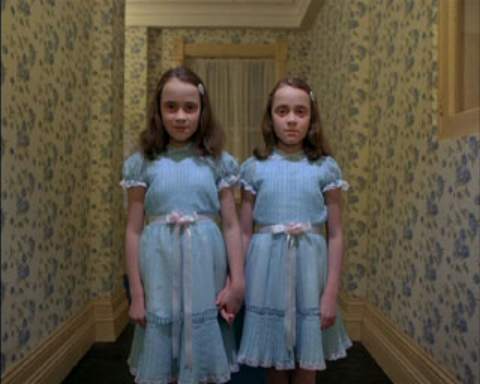Like many who love cinema, I was devastated when Stanley Kubrick unexpectedly died in March of 1999.
Kubrick is known for his highly calculated approach to filmmaking - both in terms of narrative and aesthetics. The preciseness of the Kubrick's approach to cinema suggests that his movies as being cold and vapid, which is, for example, evident in his symmetrical photography. At the same time, there is also an argument to be made that Kubrick's films are very much about what makes us human.
A theme that repeats itself in Kubrick films are the dangers of systems such as war, computers or even the family. And Kubrick likes to show the consequences when human emotions circulate within these systems. For example, when a character expresses an emotion, it tends to feel strange or out of a place. A notable example is Jack Torrance (Jack Nicholson) over-acting or melodramatic conversation with Brady the bartender in The Shining. Or, even better, the scene where Jack and Wendy (Shelley Duvall) debate over the state of their son Danny.
Or, probably the best example is the computer Hal in 2001: A Space Odyssey, who seems to have more emotions than the humans that created him.
These scenes suggests that when one goes against the system, whether it is a haunted hotel, the family or futuristic computers, it creates an abstract or surreal disruption within the narrative.
Another oddity of Kubrick is how he was able to meld his modernistic vision of cinema within the framework of pop culture. Take for example how A Clockwork Orange and Dr. Strangelove has been parodied in popular television show such as The Simpsons. Or, the famously quoted dialogue from Full Metal Jacket: "Let me see your war face" or "Here's Johnny!" from The Shining.
This brings me to Spielberg's A.I., which tells the story of a robot named David (Haley Joel Osment) who is programmed with real emotions. A.I. was suppose to be Kubrick's final film. It had been reported that Kubrick decided to film Eyes Wide Shut first, so the digital technology would catch up to his futuristic vision of artificial intelligence. Kubrick had been working with Spielberg on developing A.I. At one point, Kubrick and his brother-in-law/partner Jan Harlan were even considering Spielberg to direct. But when Kubrick died in 1999, Jan Harlan reached out to Spielberg to make A.I. in honor of Kubrick.
My experience of seeing A.I. in the summer of 2001 was quite disappointing because I was expecting to see Kubrick's dystopic futuristic vision. I mean, I had been hearing about this film since the early 1990s! I admit now that I did not like the film because it was too close to Kubrick's death. But after speaking with a friend, he recommended I see the film again. And then hearing that A.O. Scott from the New York Times picked A.I. as one of the best films of the decade, I decided to revisit the film. And glad I did.
A.I. is a frightening, yet beautiful film about a robot who goes on journey to to find the Blue Fairy who will transform him into a real boy. The imagery and special effects are fascinating. A notable sequence is when David and the other deformed robots escape from Lord Johnson-Johnson (Brendon Gleason) who runs the Flesh-Fair, a ceremony that destroys robots for public spectacle. Lord Johnson-Johnson's moon balloon hovercraft that seeks out the robot is a strange melding of E.T. and Orwell's 1984.
Most points of tension on A.I. center on its bizarre ending. I am not going to say much about it, in case you have not seen it. One can certainly add that the end tends to fit with Spielberg's sensibility and probably not Kubrick's. Though, we will never truly know how Kubrick would have handled the materials for A.I. But above all, it should not block one from seeing, arguably, one of Spielberg's best movies.









